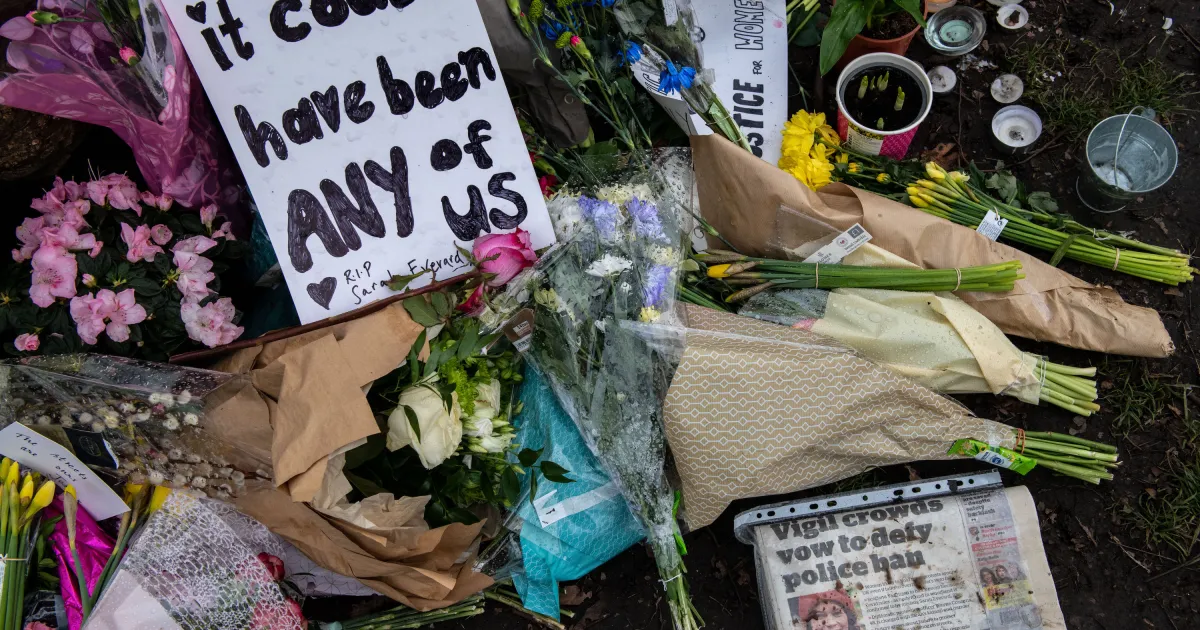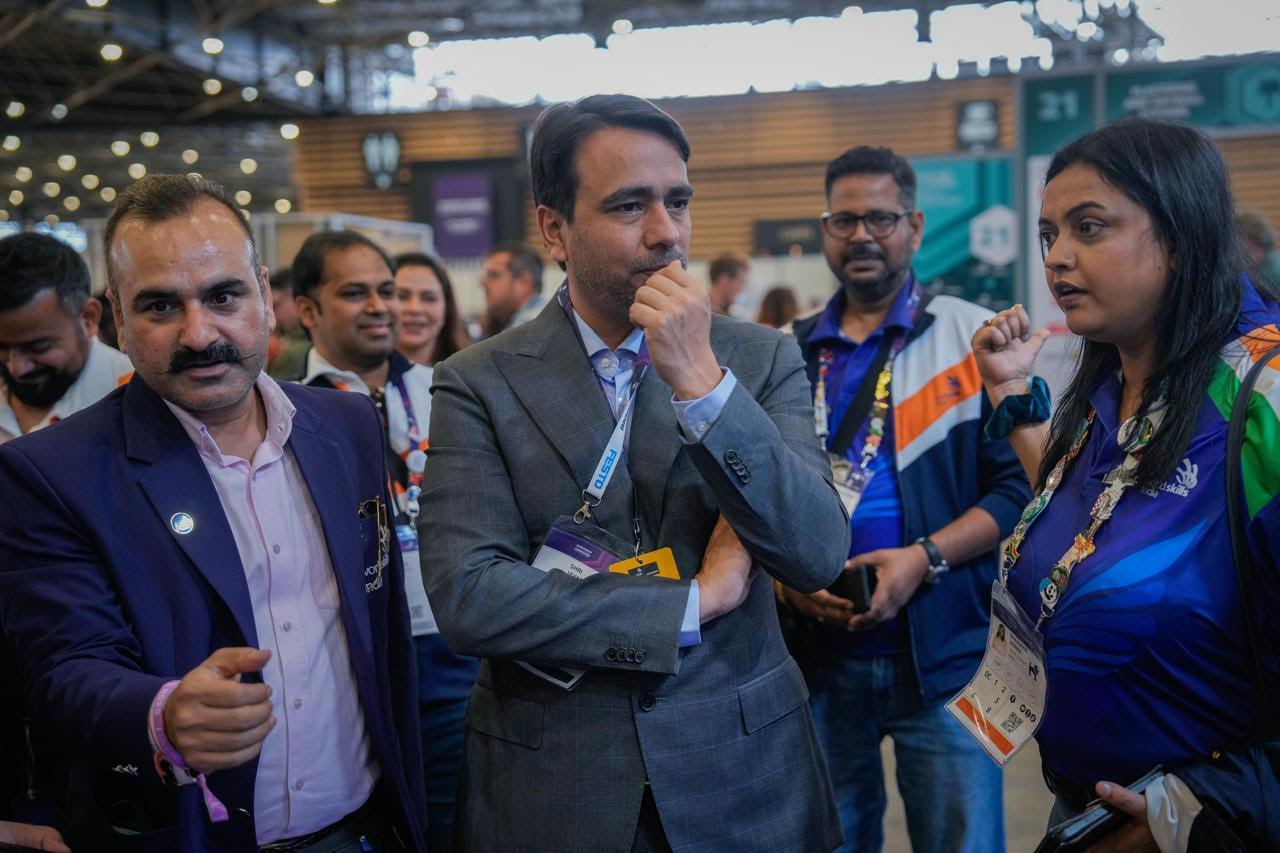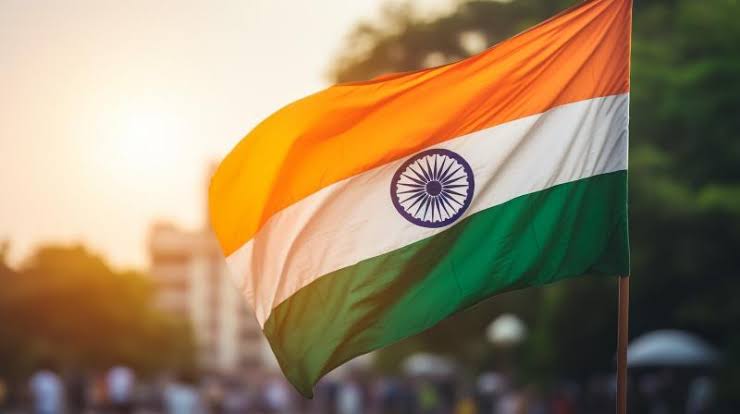Lyon: The Indian delegation at WorldSkills 2024 in Lyon, France, received a significant morale boost with a visit from Shri Jayant Chaudhary, Minister of State (I/C), Ministry of Skill Development and Entrepreneurship (MSDE). Over the two days of his visit, the Minister, accompanied by Shri Atul Kumar Tiwari, Secretary, MSDE, actively engaged with 60 competitors across 52 skills, including robotics, web development, joinery, hospitality, 3D Digital Game Art, Additive Manufacturing, Autobody Repair, Chemical Lab Technology, Cloud Computing, Cyber Security, Digital Construction and culinary arts. This visit underscored India’s unwavering commitment to global skills development and proudly showcased the nation’s talent on the international stage.
In a notable display of personal engagement, Shri Jayant Chaudhary, Minister of State (I/C), Ministry of Skill Development and Entrepreneurship, personally met with each of the 60 competitors to boost their motivation. He observed their performances as they competed against teams from Germany, France, Switzerland, China, and Korea. Taking a keen interest in the competition rules, marking systems, and the challenges they encountered, he expressed immense pride in their impressive performance on this esteemed global stage.
While witnessing the ongoing performance of the competitors, Shri Jayant Chaudhary, Minister of State (I/C), Ministry of Skill Development and Entrepreneurship said, “Watching our competitors in action, I am truly impressed by their dedication and passion. Visiting their booths, it’s clear that they are working tirelessly and with great enthusiasm. As a nation, we take immense pride in our young talent. I am confident that their exceptional performance will lead us to victory, reinforcing skilling as a cherished and aspirational value in India.”

Shri Jayant Chaudhary, Hon’ble Minister of State (I/C), Ministry of Skill Development and Entrepreneurship, also engaged in significant discussions with Ministers and representatives of other member countries, aiming to enhance global skill development efforts. He had a productive meeting with Hon’ble Professor Paul Mavima (MP), Minister of Skills Audit and Development, Zimbabwe. The talks explored potential areas of cooperation in skill development, vocational training, and capacity building. Both sides are committed to strengthening these ties, with a delegation from Zimbabwe scheduled to visit India soon to advance these collaborations and exchange best practices.
He also met with Amb (Designate) Prof. Peter Ngure, Permanent Delegate of Kenya to UNESCO. The discussion focused on collaborative initiatives in skill development, education, and capacity building. Both leaders highlighted the importance of knowledge exchange and partnerships to empower youth with future-ready skills, underscoring the growing cooperation between India and Kenya in advancing global skill development initiatives.
Shri Jayant Chaudhary also met with Chris Humphries, President and Chair of the Board, WorldSkills International, and Mr. Fahar Ali, CEO, WorldSkills Asia, along with Mr. San-Quei Lin, Board Member – Strategic Development on the sidelines of the Competition. The discussions centered on strengthening India’s position in the WorldSkills and enhancing collaboration to elevate the nation’s performance in future competitions. Shri Jayant also attended key sessions of the WorldSkills Conference, a platform for global leaders to discuss the future of skills and vocational education.
While at the WorldSkills competition and witnessing the performance of the Indian team, Shri Atul Kumar Tiwari, Secretary, MSDE said, “It has been an interesting experience. Meeting our Indian candidates and witnessing their energy, passion, and determination was truly a proud moment. Competing against the best from countries like China, Japan, France, Germany, and Switzerland, they stand tall, representing the spirit of a New India. Driven by the vision of the Hon’ble Prime Minister Shri Narendra Modi of making India the Skill Capital of the World, these young talents embody resilience, innovation, and global competitiveness. Their grit and focus are unmatched, and I am confident they will shine on this world stage.”
The competition is an impressive array of talent from across India. Jaanhvi, hailing from Punjab, showcased her innovative use of Graphic Design Technology, while Ashwitha Police from Telangana demonstrated exceptional skills in Pâtisserie and Confectionery. Kamini Kumari Ram from Odisha broke barriers in the traditionally male-dominated field of Welding with her mastery of hydrostatic pressure testing. Meanwhile, Emily VL Thakimi and Maximus Lalruatkima from Mizoram impressed with their expertise in Fashion Technology and Floristry, respectively.
The showcase continued with Tufan Mal from West Bengal, who displayed exquisite craftsmanship in Jewellery making, and Hariharan Arumugam from Tamil Nadu, excelling in a speed painting competition. Rahul Vishwakarma from Madhya Pradesh brought modern Carpentry techniques to the forefront, while Subhrajit Patra from Odisha showcased his expertise in Restaurant Service. Finally, Jayasurya Kathirvel Sivakumar from Tamil Nadu impressed with his skill in handling concrete pumps, rounding off an outstanding display of talent across diverse fields. They also witnessed the level of talent in Anagha Chemenghat, in Digital Construction, rendering 3D building models from datasets; Darshan Gowda CS and his skill in addressing his challenge in Mechatronics.
The WorldSkills Conference also saw discussions around – “Moving TVET to the Top of the Global Agenda”, multiple sessions and conferences on the sideline of the WorldSkills witnessed speakers from all over the world, representing a diverse range of experiences and expertise, a global community helping shape the future of skills and Technical Vocational and Training.









